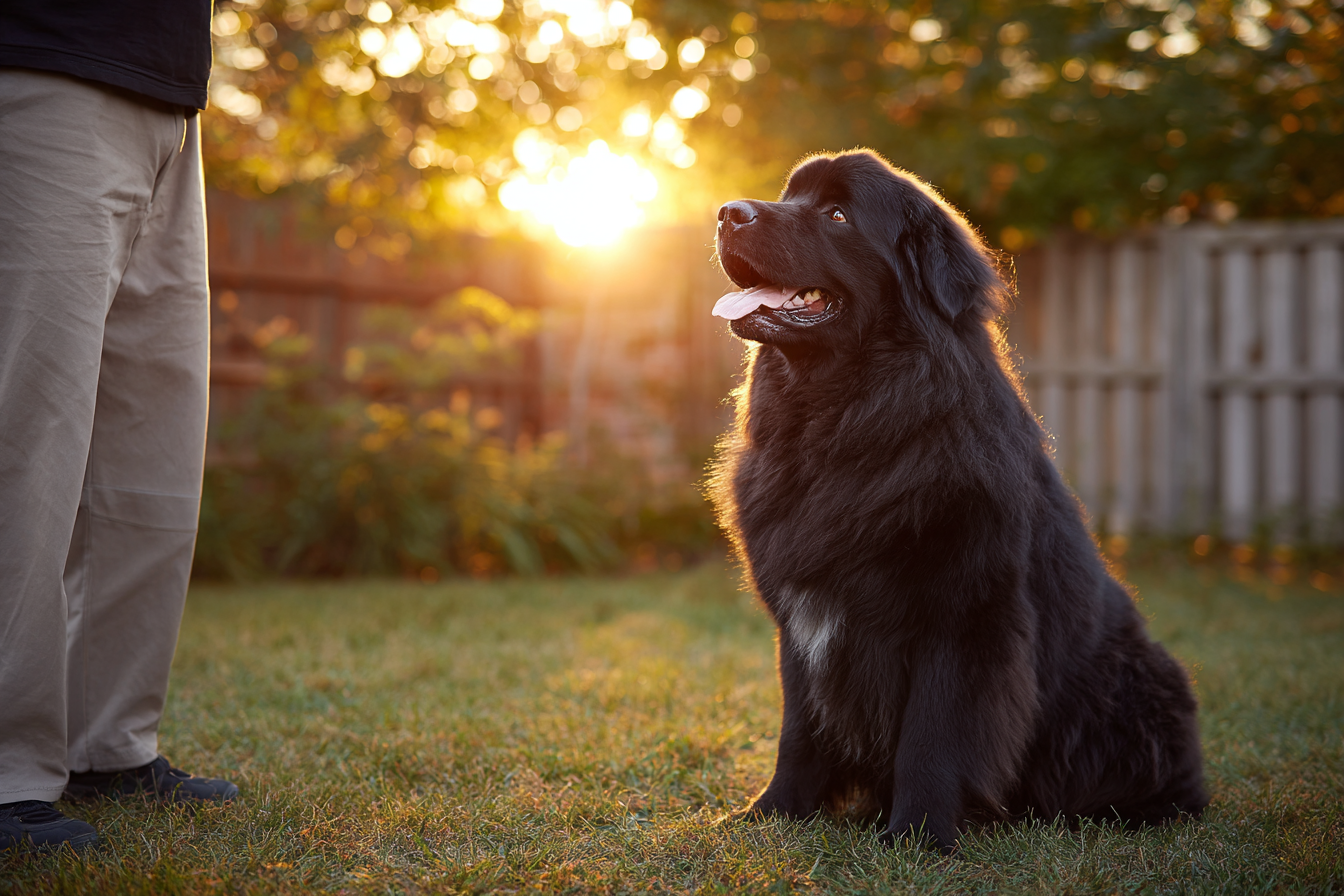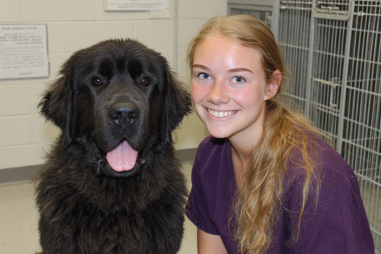Training a Newfoundland dog is a fulfilling journey that requires patience, consistency, and love. These gentle giants are not only known for their impressive size but also for their kind nature and intelligence. Proper training ensures that your Newfoundland grows into a well-behaved and social companion, capable of blending seamlessly into family life and various social settings. Whether you’re welcoming a puppy or working with an adult dog, applying the right techniques will help build a strong bond and encourage desirable behavior.
Why Training Is Important for Newfoundland Dogs
Newfoundland dogs are large and strong, often weighing over 100 pounds as adults. Without proper training, their size alone can make everyday situations challenging to manage. Teaching them good manners early on prevents potential safety issues, both for the dog and the people around them. Beyond safety, training provides mental stimulation, which is crucial for this intelligent breed. Without enough mental exercise, Newfoundlands can become bored and develop unwanted behaviors such as excessive barking or destructive chewing.
Additionally, training helps reinforce the Newfoundland’s natural calm and gentle temperament. These dogs are known for their patience and loyalty, but guidance is necessary to channel their energy appropriately. Proper obedience training also makes routine activities, like grooming and veterinary visits, easier and less stressful for both dog and owner.
Basic Obedience Training Steps
Starting with the basics lays a solid foundation for further learning. Here are key steps to focus on during early training:
- Establish a Routine: Consistency in feeding, walks, and training sessions helps your Newfoundland understand expectations and build trust.
- Start with Simple Commands: Teach essential commands like “sit,” “stay,” “come,” and “down.” Use clear, firm verbal cues paired with hand signals to make communication easier.
- Short Training Sessions: Keep training sessions to 10–15 minutes to maintain your dog’s interest and prevent frustration.
- Leash Training: Given their size, teaching proper leash manners early on is crucial to avoid pulling or sudden lunges during walks.
- Crate Training: This helps with housebreaking and provides your dog with a safe space to relax.
Consistency and repetition are key during basic obedience. Repeating the same commands in different environments helps your Newfoundland generalize good behavior.
Positive Reinforcement Techniques
Newfoundlands respond exceptionally well to positive reinforcement, a training approach that rewards desirable behaviors rather than punishing mistakes. This method builds trust and encourages your dog to work with enthusiasm.
- Treats: Use small, tasty treats to reward good behavior immediately after it occurs. Choose healthy options to avoid overfeeding.
- Praise: Verbal encouragement and petting are powerful motivators. Use a happy tone to reinforce your dog’s accomplishments.
- Play: Incorporate playtime as a reward, such as a favorite game of fetch or tug-of-war.
- Clicker Training: Using a clicker to mark the exact moment your dog performs a command helps create clear communication.
Always approach training with patience and positivity. Avoid harsh corrections, as Newfoundland dogs are sensitive and may become hesitant or fearful when scolded.
Socialization with People and Other Animals
Socialization is vital for a well-rounded Newfoundland dog. These gentle giants tend to be friendly but may become shy or anxious without exposure to various environments, people, and other animals.
- Introduce Gradually: Start socialization early by exposing your dog to different people, including children, adults, and seniors.
- Safe Encounters: Arrange positive interactions with other dogs and animals, ensuring all meetings are calm and controlled.
- Varied Environments: Take your Newfoundland to parks, busy streets, pet-friendly stores, and other public spaces to acclimate them to new sights and sounds.
- Enroll in Puppy Classes: If you have a young dog, puppy socialization classes provide structured opportunities to meet others with guidance from a professional trainer.
Positive socialization experiences promote confidence and reduce the risk of fear-based or aggressive behaviors later in life.
Handling Common Behavioral Challenges
Like all dogs, Newfoundlands can exhibit certain behavioral challenges if not managed properly. Addressing these early helps prevent escalation and frustration.
- Jumping Up: Large dogs jumping on people can be overwhelming. Teach your Newfoundland to sit calmly when greeting guests by rewarding quiet behavior.
- Leash Pulling: Use consistent leash training techniques, such as stopping when pulling occurs or changing direction, to discourage this behavior.
- Barking: While generally calm, Newfoundlands may bark to alert their owners. Teach a “quiet” command and reward silence to manage excessive barking.
- Separation Anxiety: Being social dogs, Newfoundlands can become anxious when left alone. Gradually increase alone time and provide engaging toys to ease this stress.
- Chewing: Provide plenty of chew toys and redirect inappropriate chewing to acceptable items.
If behavioral issues persist or worsen, consulting a professional dog trainer or behaviorist can offer tailored solutions.
Consistency and Patience in Training
Training a Newfoundland dog requires a steady, patient approach. These dogs are intelligent and eager to please, but their size and strength mean training mistakes can have bigger consequences. Here are tips to maintain consistency:
- Use the Same Commands: Ensure everyone in the household uses the same words and signals to avoid confusing your dog.
- Establish Clear Rules: Decide on house rules early and apply them consistently, such as whether the dog can jump on furniture or enter certain rooms.
- Be Patient: Training takes time, especially with a large breed. Celebrate progress, no matter how small, and understand setbacks are part of the process.
- Regular Practice: Frequent short sessions are more effective than occasional long ones. Make training a daily habit.
Maintaining patience and consistency strengthens your dog’s trust and helps training become a positive and rewarding part of your routine.
Bringing It All Together for a Happy, Well-Behaved Newfoundland
Training your Newfoundland dog well sets the stage for a lifetime of companionship built on respect, trust, and mutual understanding. These noble giants thrive when provided clear guidance, ample social opportunities, and positive reinforcement. By focusing on basic obedience, socialization, handling challenges wisely, and being consistent and patient, you can enjoy a gentle, well-mannered dog who is a joy both at home and in public.
Remember, Newfoundland dogs have a loving nature and a desire to please their owners. With the right training approach, you’ll find that training them is not only effective but also a deeply rewarding experience that strengthens your bond and helps your dog flourish.







